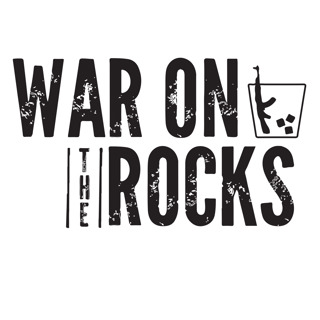
Russia Downscales Its War, But Not in Brutality
Michael Kofman joined Ryan once more to update us all on the war in Ukraine. In this episode, Kofman explains how and why Russia is refocusing on the east of Ukraine, what the war in Syria revealed about shortcomings in Russian air force, and what Ukrainian forces need in terms of weaponry and supply to win this war. The two also discuss Russian war crimes and their relation to the Russian military's internal culture of violence and hazing as well as Vladimir Putin's framing of this war of "de-nazification." The conversation ended with Kofman explaining Moscow's big military manpower decision, which you may have missed, and how it connects to Putin's difficult strategic position.
11 Huhti 202227min

Is India "Shaky" on Ukraine? It's Complicated
President Joe Biden recently made headlines when he described India as being "somewhat shaky" on the issue of punishing Russia for its invasion of Ukraine. Tanvi Madan of the Brookings Institution sat down with Ryan to explain why India is taking a quieter and less aggressive tact as it navigates this international crisis. The answers to the question in the title are far more interesting and complicated than you might think. Join Ryan and Tanvi for this wide-ranging conversation, which touches not only on India's relations with Russia, but how this all fits in with its relations with China and Ukraine.
31 Maalis 202234min

A New Phase of the Russo-Ukrainian War Begins
With Moscow's announcement that the core aim of its invasion of Ukraine is now just to secure the Donbass, the conflict has entered a new phase. Michael Kofman of CNA joins Ryan once again, for the fifth week in a row, to help us parse through events on the battlefield. They discuss the resilience of Ukrainian society, stalled fronts, the air war, tactical adaptations, the effects of Western armaments, drones, the maritime picture, where Russian munitions are falling short, why Michael doesn't think Russia will use chemical weapons, why the Battle of Kyiv is not likely to happen, the emergence of the suburban guerrilla, and the ability of Ukrainian forces to continue to turn back Russian offenses and possibly even go on the offensive themselves. Are you a War on the Rocks member? https://warontherocks.com/membership
27 Maalis 202233min

In the Fourth Week, Is Russia Revising its War Aims Amidst Attrition?
Michael Kofman joins Ryan once again to help us understand the Russo-Ukrainian War as its fourth week unfolds. They cover a lot of ground: Mike updates us on the three fronts — where Russian forces are making progress and where they are not — and how the stalling campaign might drive Moscow to dramatically change its war aims. He also explains why it's hard to gauge the condition of Ukrainian forces, how Putin's stated aim of Ukraine's 'demilitarization' is playing out in terms of strikes against Ukraine's industrial base, and what role Belarusian forces might (but probably won't) play in the conflict. Mike and Ryan also discuss the effects of sanctions on the Russian military industrial base, detentions of senior Russian security officials, how long Russian military manpower can last, the role of elite infantry units in this campaign, and the chilling repressive apparatus that seems to be taking shape in Russian-occupied portions of Ukraine. Kofman provides a bracing warning: this war can still get worse in terms of the human cost as it transforms into war of attrition.
21 Maalis 202236min

Into the Third Week: Will Russian Forces Need to Pause?
Michael Kofman joins Ryan for the third week in a row to discuss the ongoing war in Ukraine. He breaks down the state-of-play on three fronts — southern, eastern, and northern — as well as the air war. When will Russian forces become exhausted and require a pause? How does this relate to negotiations between Kyiv and Moscow? How should we understand the risks of war under the nuclear shadow and under what scenarios might Putin turn to his nuclear arsenal? Kofman tackles these questions and more.
14 Maalis 202230min

11 Days In: Russia's Invasion Stumbles Forward
Russia bungled its invasion plan but is nonetheless making progress in the face of fierce Ukrainian resistance. But can the Russian military stay combat effective? What lessons can we learn from the war so far? What role is urban warfare playing in this fight? What do the troubles faced by the Russian military and security services in Ukraine portend for the regime of Vladimir Putin? And what exactly is going on with that long column of Russian forces north of Kyiv? In our last episode, Michael Kofman sat down with Ryan to break down the first few days of the war. In this episode, he brings us up to speed and breaks down the state-of-play.
7 Maalis 202239min

Interpreting the First Few Days of the Russo-Ukrainian War
People all over the world are watching Russia's assault on Ukraine unfold in real time through social media, giving us a gritty and vivid view of 21st-century combat. But how complete of a picture does this give us? How is the war actually unfolding? Why has Russia seemingly stumbled in the first few days of its invasion? Does this mean Ukraine can hold out? Michael Kofman of CNA sat down with Ryan to give some preliminary answers to these questions. Keep in mind this was recorded on the evening of Sunday, Feb. 27, and events are changing quickly. Some of what Kofman predicted in terms of more Russian forces entering the fight already seemed to already be underway as we completed post-production for this episode.
28 Helmi 202225min

People At the Center: Talent, Education, and Modernization
The armed services are modernizing across the board, perhaps most importantly in the closely related areas of talent development, education, and data. Maj. Gen. Andrea Tullos of the U.S. Air Force, Brig. Gen. Charles Lombardo of the U.S. Army, and former Deputy Under Secretary of Defense Al Schaffer joined Ryan to discuss how these changes might unfold. Special thanks to iFest and Sae Schatz for making this event possible.
1 Helmi 202249min






















